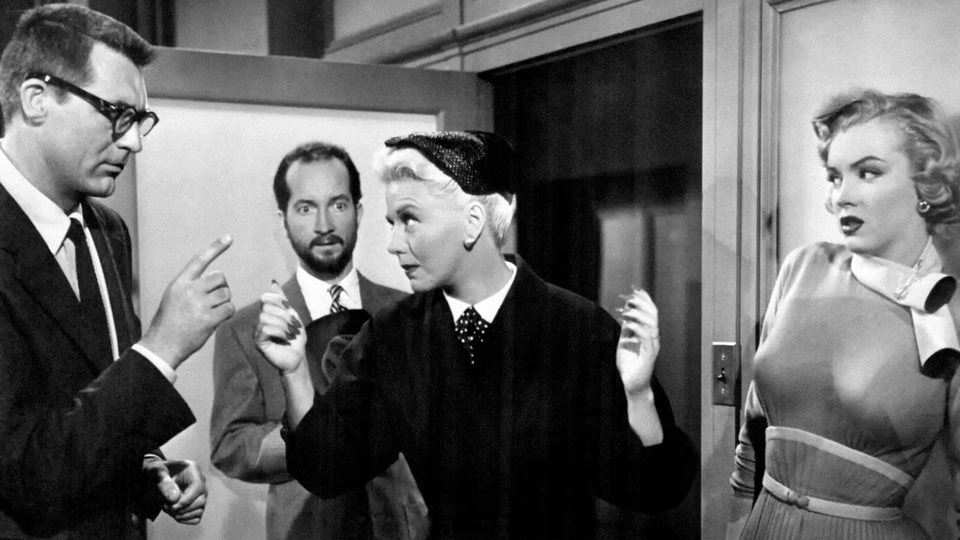Monkey Business

Cary Grant plays a scientist who discovers a formula that makes him and his wife, played by Ginger Rogers, act like teenagers.
The first half of Monkey Business is great. Cary Grant goes from stuffy, absent-minded scientist to hormonal teenager and hilarity ensues. He underplays the part well, making the transition subtle at first, then more pronounced as the segment goes on. Further, his natural chemistry with Marilyn Monroe—who’s at the top of her game as a naïve temptress—makes this part of the story all the more appealing. Right about the time Grant’s character starts reverting to his old self is when you should turn off the movie.
Should you stick around, you’ll see the film’s focus shift from Grant to Ginger Rogers. Unfortunately, as with their previous collaboration, Once Upon a Honeymoon, Rogers simply isn’t funny. While Grant’s character seems to change into an adolescent, to judge by Rogers’ performance, her character changes into a crazy person. She overacts from the get-go, exhibiting none of Grant’s restraint, and quickly makes the next fifteen to twenty minutes an exercise in patience. Compounding matters, Marilyn Monroe has all but disappeared.
Ironically, the script originally only had Grant’s character taking the formula, but Rogers insisted her character do so as well, and director Howard Hawks, unfortunately, gave in. He later regretted it, although apparently not in time to save the movie.
And what’s with the obvious bald cap Hugh Marlowe’s wearing after being taken prisoner by Grant and the neighborhood kids? Are we supposed to believe they actually shaved his head, or that the kids had a spare bald cap lying around they forced him to wear?